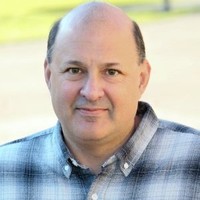
Michael Mehta
- Courses8
- Reviews21
- School: University of Saskatchewan
- Campus:
- Department: Sociology
- Email address: Join to see
- Phone: Join to see
-
Location:
Saskatoon, SK - Dates at University of Saskatchewan: March 2002 - April 2019
- Office Hours: Join to see
Political Leanings:
| Liberal | Conservative |
Biography
University of Saskatchewan - Sociology
Professor, Environmental Studies
Higher Education
Michael
Mehta
Canada
Dr. Michael Mehta is a Professor of Geography and Environmental Studies at Thompson Rivers University in Kamloops, British Columbia. He is an environmental social scientist who specializes in science, technology and society with a focus on environmental and health risk issues.
Dr. Mehta was the Dean of the Faculty of Arts at Thompson Rivers University.
Previously he was Professor of Environmental Studies at the University of Winnipeg, and was the founding Principal of Richardson College for the Environment. While Principal, Mehta worked on developing key academic and community programs in the areas of Forest Ecology, Urban Ecology, The Global North, Water Resources and Environment & Health.
Prior to joining the University of Winnipeg, Mehta was the Executive Director of the Population Research Laboratory at the University of Alberta where he led approximately 30 research projects. With 100+ employees the Population Research Laboratory is the largest social sciences research centre in Western Canada.
Before that he was at the University of Saskatchewan where he was Chair of the Sociology of Biotechnology Program, Director of the Social Research Unit, and Professor of Sociology.
Mehta is widely published with five books and 60 Peer-Reviewed Journal Articles and Book Chapters; 8 Technical Reports; 4 Book Reviews; 200+ Invited Lectures and Conferences Presentations; $65 Million In Research Grant Funding; Organizer of 11 Conferences; 250+ Media Interviews.
Experience
University of Alberta
Executive Director, Population Research Laboratory
Mehta was the Executive Director of the Population Research Laboratory at the University of Alberta, where heI led approximately 30 research projects. With close to 100 employees the Population Research Laboratory is the largest social sciences research centre in Western Canada. It has extensive experience in conducting research in the areas of health, education, labour markets, environment, science and technology, immigration, social policy and public opinion.
Immediately upon taking over as Executive Director of the Population Research Laboratory he began to review the Lab and was surprised to discover that there were several deficiencies. Few policies existed to guide decision-making, no strategic plan was in place to move the Lab forward, and budgeting was done in an ad hoc fashion. As someone directly responsible for a cost-recovery unit, a more systematic and strategic approach to leadership was required. In consultation with his staff, an external advisory committee, and with directors of similar centres across campus and elsewhere in Canada, he created and implemented a strategy map, developed a typology based on the balanced score card approach for measuring the effectiveness and efficiency of new and older policies, and crafted a series of new policies to help align the Lab with the needs of the University of Alberta. Additionally, he developed a continuing education program for staff members, began the process of fleshing out an enterprise risk management (ERM) framework for assessing internal and external risks and opportunities, created a pandemic flu plan as part of the Lab’s business continuity planning, developed new relationships with clients from various sectors, and reorganized the day-to-day operations of the Lab to increase efficiencies.Richardson College for the Environment, University of Winnipeg
Principal and Professor
Mehta was the founding Principal of Richardson College for the Environment at the University of Winnipeg. The Principal was the Chief Executive Officer of the College and he was responsible for its entire academic and administrative operation. While in that role he developed undergraduate and graduate programming -- as well as centres and institutes. After extensive analysis of current on-campus strengths, and by analyzing gaps in Canadian environmental programs, he focused his attention on three core areas: (1) resource management including water, forestry, and mining; (2) Indigenous environmental knowledge with a concentration on the North and urban communities, and; (3) the green economy with an emphasis on sustainable transportation, housing, energy, and manufacturing. Unfortunately, the financial situation of the university resulted in these plans being put on hold indefinitely.
Thompson Rivers University
Dean and Professor, Faculty of Arts
The Dean is the Chief Academic Administrator, and Dean Mehta's focus was on building collegial governance approaches, pathways to excellence, and strong student-oriented institutions through shared accountability, plan development and implementation, and respect.
Thompson Rivers University
Professor, Department of Geography and Environmental Studies
Mehta is developing a range of new courses in areas like environmental impact assessment, risk, and others.
Sweet Spot Solar Company
President and CEO
A low-cost provider of solar equipment in Western Canada with sales associates serving Kamloops and the interior of British Columbia, Central Vancouver Island and the Gulf Islands, and Saskatoon and area. We do residential, commercial and community projects.
GabEnergy
Founder and Director of Research
GabEnergy is a registered non-profit society located on Gabriola Island, British Columbia. We work with our community to explore, plan, develop, and operate alternative and renewable energy systems to help meet a variety of goals including sustainability, community capacity building, and cost savings.
Education
York University
Doctor of Philosophy (Ph.D.)
Environmental Sociology
York University
M.E.S.
Environmental Studies
Queen's University
Post-Doctoral Fellowship
Environmental Policy
Possible Matching Profiles
The following profiles may or may not be the same professor:
- Michael Mehta
Thompson Rivers University - Geography







